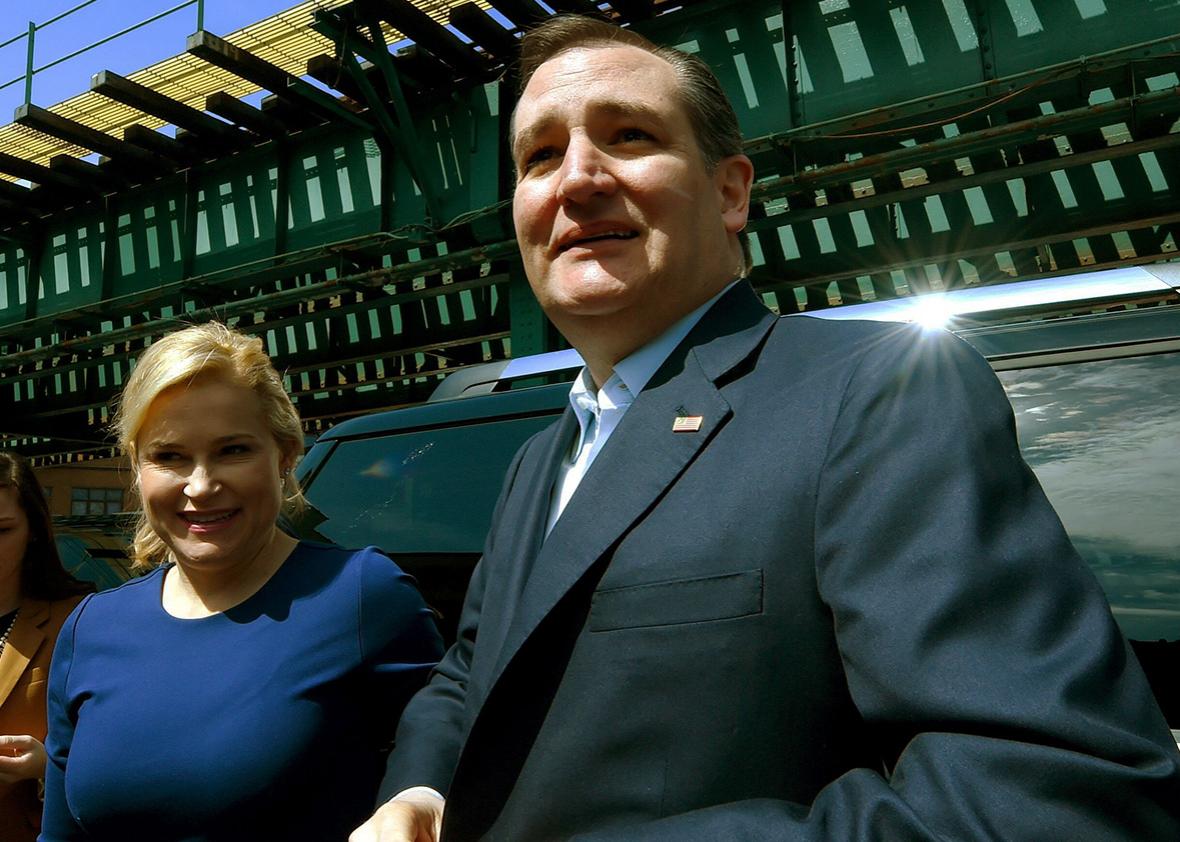Sen. Jim Risch is not sure whether he’s endorsed his colleague Sen. Ted Cruz for president. In a Wednesday interview with CNN’s Wolf Blitzer, the Idaho senator said he “hopes” Cruz takes the nomination. Blitzer responded by saying that makes him only the third senator to endorse Cruz, a comment that befuddled Risch. “Did I just endorse, Wolf?” he asked. Blitzer pointed out that he had said he “hopes” Cruz is the nominee because he’s better than the other two candidates. So is that an endorsement? “I guess,” Risch responded.
“Obviously Kasich is so far behind, it’s impossible really for him to get the numbers, so by process of elimination that gets you to Ted Cruz,” Risch added. Don’t get carried away now, Jim, you’re going to make the man blush.
Risch’s resigned quasi-endorsement is more than Cruz is getting from his other congressional colleagues this week. You might’ve thought his high-profile thrashing of Donald Trump in Wisconsin would’ve positioned him for a wave of endorsements—even from those who have despised him and his brand of politics for years. But as the Washington Post and Daily Caller report, his colleagues are hardly rushing to sign on.
So what?
Cruz doesn’t need endorsements from lousy senators. His success thus far is proof enough of that. Cruz knows that he’ll have the support of his colleagues, as well as of the “establishment,” when the time comes: at the convention, when their choices really are limited to either him or Donald Trump.
“Let’s face it, Senate endorsements haven’t had much sway,” Louisiana Sen. Bill Cassidy told the Post. Exactly correct, Bill Cassidy! The two candidates who racked up by far the most endorsements among members of Congress were Jeb Bush and Marco Rubio. You don’t hear much about Jeb Bush and Marco Rubio anymore. It is almost as if a primary electorate that has awarded 78 percent of delegates so far to either Donald Trump or Ted Cruz pays little heed to congressional endorsements.
Might it be that they’re even a burden? “I think there are individual senators who probably have had discussions with the campaign,” Sen. Jeff Flake told the Daily Caller, “but frankly, I’m not sure Sen. Cruz wants members of the establishment endorsing him. … It’s kind of been the kiss of death around [here].”
For the Cruz campaign, a wave of establishment senatorial endorsements would counter the central appeal of his campaign to Republican voters. From the moment he came to Washington, he has been laying the cynical groundwork of his presidential campaign by doing whatever he could to make Washington hate him. This is not an especially complicated task—just find out what would annoy Republican leaders at any given moment, and then do it—and he has executed it well. Why change now, when that strategy hasn’t appeared to hinder his chances? Even as he becomes, amazingly enough, the “sane” option in relation to Donald Trump, he’s not laying off his rhetoric as the establishment’s worst nightmare.
The one factor that could compel Cruz to lay an all-out charm offensive on fellow party members is to ward off the threat of an establishment convention coup. There is some chatter going around, after all, about party leaders simply overlooking primary results and bringing in a “white knight” or “consensus” candidate— Speaker of the House Paul Ryan, say—during the latter ballots of a contested convention. It might be in Cruz’s interest, then, to persuade them that he’s their guy, even after all his years of back-bencher heckling.
The problem with this scenario is that the Cruz campaign doesn’t think the establishment has the leverage to enter such a savior candidate into the mix.
Speaking to reporters in Wisconsin early this week, Cruz described the “white knight” scenario as a “fevered pipe dream.” He explained how difficult it would be to pull off such a maneuver. Because he and Trump would have a “supermajority” of delegates, and the rules committee at the convention comprises those delegates, it would be very difficult for the establishment to rewrite Rule 40(b), which allows only candidates who’ve won a majority of delegates in eight states to have their names entered into consideration. As long as Cruz and Trump stick together on this—and so far, they have!—their loyalists will ensure that only they are entered for consideration.
In an era when Congress’ approval rating was higher than 13 percent, endorsements might have held more sway as positive signals to voters. Before this cycle, the candidate with the most endorsements from leading party officeholders, operatives, interest groups, and so forth usually won the nomination. That pattern broke this time around when the campaigns of Bush and Rubio collapsed. Cruz doesn’t need the party muckety-mucks to decide for him. They’re the ones who need to fall in line.
Read more Slate coverage of the 2016 Republican primary.
